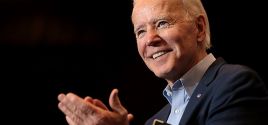Skeleton in the Bush family cupboardThe TelegraphMay. 09, 2006 |
Popular 
U.S. 'Shoots Down Own Jet' Over Red Sea in 'Friendly Fire Incident'

Biden Commutes Sentences of 37 of 40 Federal Death Row Inmates - Excludes Robert Bowers, Dylann Roof

Putin Accuses 'Ethnic Jews' of Tearing Russian Orthodox Church Apart

Ohio Senate Passes Bill Aimed at Outlawing Criticism of Israel, Criminalizing Gospel

Saudi National Rams Car Into Germans at Christmas Market in Suspected Terrorist Attack [UPDATED 2X]
  One of America's great historical controversies intensifed yesterday with the publication of fresh evidence that members of an elite secret society may have dug up the remains of the Indian leader Geronimo and displayed his skull in their headquarters. One of America's great historical controversies intensifed yesterday with the publication of fresh evidence that members of an elite secret society may have dug up the remains of the Indian leader Geronimo and displayed his skull in their headquarters.Rumours that half a dozen members of the Skull & Bones society at Yale University - including President George W Bush's grandfather, Prescott Bush - dug up the grave of the legendary Apache leader during the First World War have exercised historians for years. "Bonesmen", as senior members of the society are known, and the Bush family have long refused to comment on the claims. The society, founded in 1832 and famous for its strange rituals centred on symbols of death, has over the years been accused of obtaining the skulls of a range of famous figures, including the former president Martin Van Buren and Che Guevara. Its members include President Bush and his defeated rival in the last presidential election, Senator John Kerry. Now contemporary evidence has been unearthed backing the theory that a group of young Bonesmen, based at an artillery school at Fort Sill, Oklahoma, desecrated Geronimo's grave. The Apache leader had died while in custody at Fort Sill in 1909, 23 years after he finally surrendered to US troops. In a letter written in 1918, one society member tells another that Geronimo's skull had been exhumed and was being kept in the "Tomb" - the society's headquarters in New Haven, Connecticut. "The skull of the worthy Geronimo the Terrible, exhumed from its tomb at Fort Sill by your club... is now safe inside the T- [Tomb] together with his well-worn femurs, bit & saddle horn." The letter was unearthed in Yale University archives by a historian writing about First World War Yale pilots, and published in the Yale Alumni Magazine. The letter names only one member of the alleged raiding party, a Charles Haffner, and makes no mention of Prescott Bush, who become a senator and is seen as the founder of the Bush political dynasty. He was first linked to the saga in 1986, 14 years after his death, when documents from the society's archives were leaked purportedly showing that six Bonesmen - identifiable by their nicknames and including Prescott Bush - unearthed Geronimo's skull. Some historians insist that the grave was never disturbed and that if there is a skull in the Tomb it is not the Apache leader's. David Miller, a history professor from Cameron University, Oklahoma, said that until 1920 Geronimo's grave was unmarked. "My assumption is that they did dig up somebody at Fort Sill," he told the Yale Alumni Magazine. "But it probably wasn't Geronimo." But society members have long believed that they do have Geronimo's skull in their headquarters. "Many talked about a skull in a glass case by the front door that they call Geronimo," Alexandra Robbins, the author of Secrets of the Tomb, an exposť on the society, told the magazine. Apache leaders seized on the news yesterday as further evidence that America's elite treated Indian tribes as a subspecies into the 20th century. "Who in the hell would do such a thing?" asked Raleigh Thomson, a former branch leader who has campaigned to transfer Geronimo's remains to the tribe's Arizona reservation. He told the Wall St Journal: "I guess it's the way my elders used to explain to me that white people are." |



